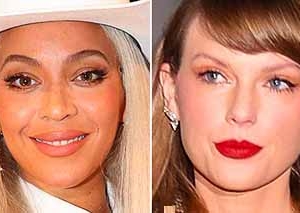
Charlene deGuzman’s new film Unlovable tells her story of survival in this honest portrayal of sex and love addiction. ‘Unlovable’ is a movie for all women who struggle with love addiction and dependency.
DeGuzman, 34, wrote and directed the comedy about her personal experiences with sex and love addiction.
“I think there’s one perspective of sex addiction in films,” deGuzman told Fox News. “But it’s important to show sex and love addiction, which is more of a dependency and attachment issue. For me, it was pursuing unavailable men. And that desperate need for validation, anything to get that hit of validation because of this strong hunger for love that I wasn’t giving myself. That’s the perspective I wanted to show because it’s [one] that is shared by so many people, men and women.”
She describes her lifelong dependency on males which started when she was only 12.
“I was always jumping from boy to boy,” she explained. “I had my first boyfriend when I was 12. And then I had never been alone since then… I actually started recovery from sex and love addiction because I was trying to save a relationship. And I thought, maybe if I join this program, I would get better and the relationship would get better. So I had no contact with this boyfriend for four months. Then I went back to him. I had sex with him. And then he went MIA like he always does.”
DeGuzman describes her epiphany — that moment when she realized she was a love addict.
“I wanted to kill myself because I felt so horrible,” she said. “I felt so much pain. I couldn’t believe I was here yet again. And that was the day I really was trying to kill myself. And then after hours of pacing around in my apartment, trying to decide how I was going to do this, he called finally. Just seeing his name and picture on my screen, I felt the pain and anguish I’ve been feeling dissipate from my body immediately… It was at that moment I realized how sick I really was. And that’s when I started taking recovery seriously.”
The best way to describe love addiction is like being addicted to cocaine and heroin. It’s great when you have a good supply, but when that supply ends, you begin to feel the debilitating effects of withdrawal.
Famous love addicts include Khloe Kardashian and Jennifer Lopez, women who can’t live without a man for 15 minutes without feeling the withdrawal effects.
Your auntie previously shared my own experiences with love addiction and situational depression.
I’d just suffered yet another painful breakup, and I decided I couldn’t go on. I was unlovable and life wasn’t worth living anymore. I was tired of women treating my heart like a football.

I should’ve been blogging that day, but I couldn’t find the strength. So I reached out to a nurse friend, a former co-worker of mine, and I described my heartache and my suicidal ideations. I told her that I was on the floor and couldn’t get up. She told me not to do anything until she called me back.
She reached out to a doctor, who, without meeting me, prescribed an antidepressant. It took all the strength in me to drive to the drug store to pick the medicine up. I felt hopeless; I had taken antidepressants in the past that did nothing for me.
But this medicine was different. It worked almost immediately. I felt so much better and my mood lifted. But most importantly, I was able to get up off the floor.
I can’t remember the name of the drug, but the fact that it was so effective in lifting my depression motivated me to research it.
I learned that, unlike most antidepressants which block the reuptake or reabsorption of Dopamine in the brain, this drug actually decreased the levels of dopamine in my brain.
Dopamine is one of the neurotransmitters (chemicals) that stimulates the reward center of the brain. It is one of the chemicals that causes our dependency on drugs, alcohol, food, and sex.
DeGuzman’s movie, Unlovable, is for all women who find themselves on the floor, unable to get up and move on with their lives after yet another heartbreak.
“I really want to help get rid of the shame and stigma around addiction,” deGuzman said. “If we talk about it more, people heal. But if we keep it as this taboo thing people aren’t allowed to talk about, then people are going to continue to suffer. I felt it was really important for me to share this and bring awareness so that other people could feel less alone.”





